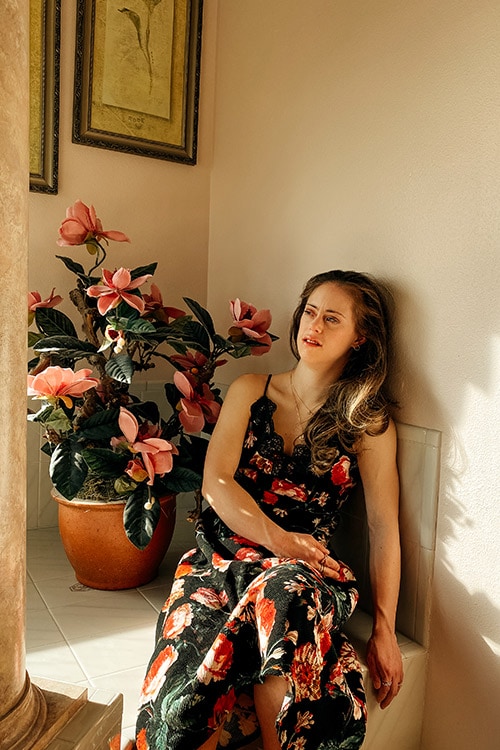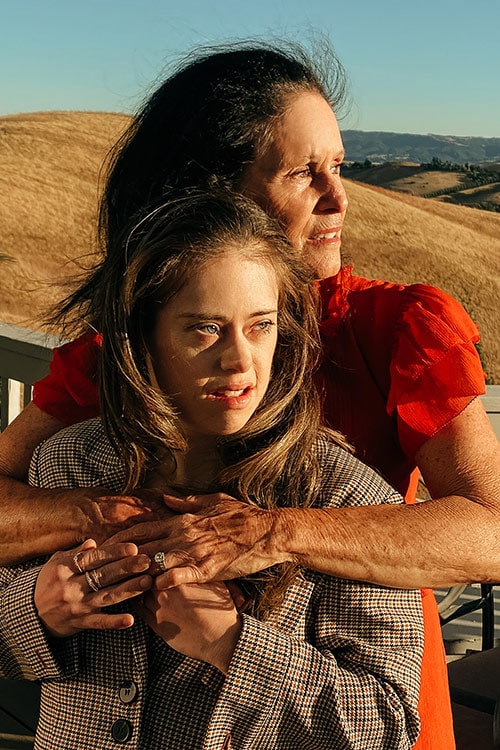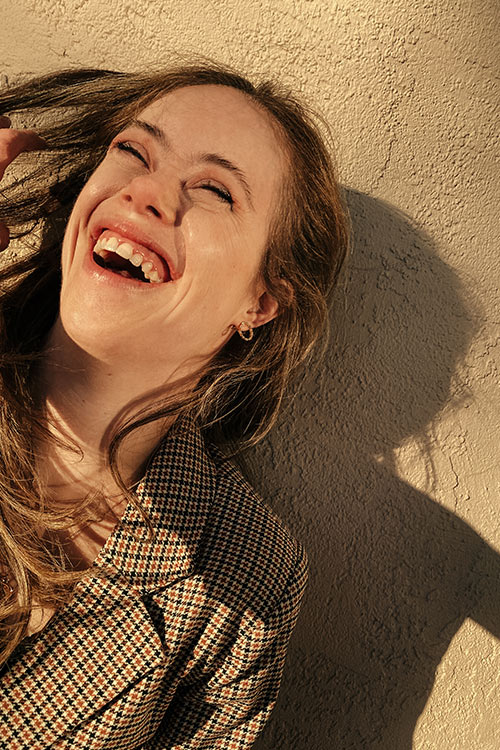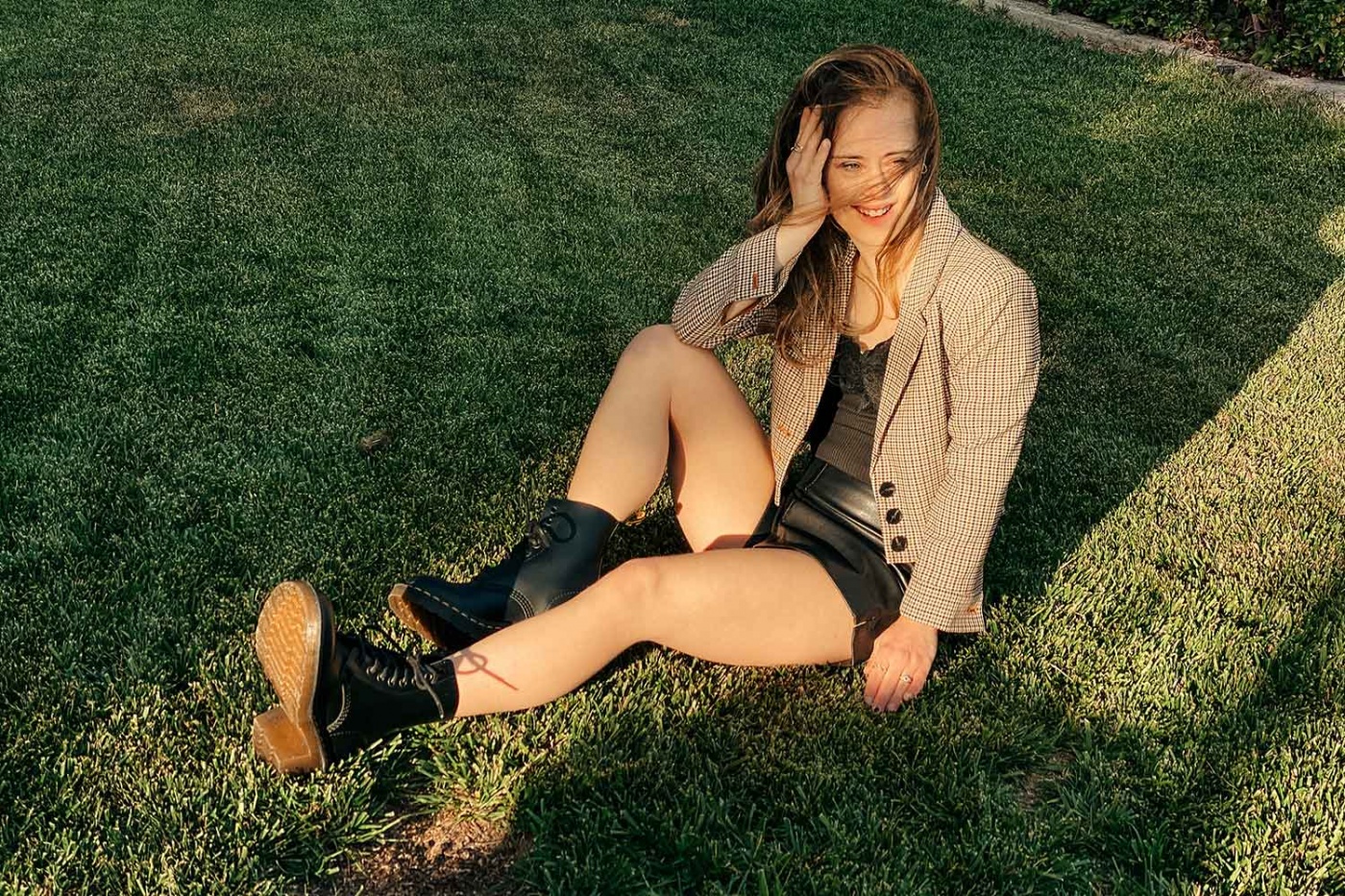Born With Down Syndrome, World Champion Gymnast Chelsea Werner Is Breaking Boundaries
Gymnastics is a high-impact sport like no other: sinewy yet highly flexible athletes in glittering crystal-encrusted leotards twisting effortlessly in the air, executing astounding routines filled with numerous challenging elements. Aside from the demanding physical, technical, and mental strength needed, one misstep can cause serious injuries, which is why it isn’t for the faint of heart. 28-year-old Chelsea Werner, who was diagnosed with Down syndrome at birth, has, despite her condition, defied the odds against her physicality to become a four-time national champion of the Special Olympics and a two-time defending world champion.
The illustrious athlete is also a star in the fashion world and has graced the cover of fashion magazines like Teen Vogue, travelled to Havana to shoot for an H&M campaign and strutted down the catwalk at New York Fashion Week. Currently, she is signed with New York-based agency We Speak, and hopes to continue to break beauty stereotypes and force people to look beyond disability. Werner makes empowerment and self-confidence seem effortless—proving that nothing in life is insurmountable and that alone is just as inspiring as it is extraordinary.
High Net Worth: Despite being told that you would have low muscle tone for the rest of your life, you started playing a variety of sports at the age of eight. What motivated you to do sports?
Chelsea Werner: I have two older brothers who were athletes. My parents had them try a variety of sports and they allowed me to do the same thing too. I enjoyed soccer, swimming and particularly gymnastics.
What drew you to gymnastics?
My teammates, taking part in competitions and having the crowd cheer for me.

Tell us about your experience competing in the first 2012 Special Olympics National Gymnastics Championships.
It was very exciting to have a chance to compete at a national level. As the Special Olympics Gymnastics training schools were discontinued in my area, I was forced to train together with non-disabled athletes. That was a huge advantage when I joined the Special Olympics later.
As a four-time National Champion of the Special Olympics and a two-time defending World Champion, what does it take to reach the top and stay there?
I had to put in a lot of training hours to prepare for those championships. I didn’t know how tough the competition would be. There is always a risk factor when doing harder routines, so I’m glad it paid off!
Gymnastics has certainly given you a tremendous amount of confidence. What else did you gain from the sport or teach you about life?
Gymnastics has given me a strong work ethic and taught me discipline that I can apply to every aspect of my life. It has also helped me to take on new challenges without fear.
More professional athletes are talking about the importance of mental health these days. Did you ever experience any mental health issues?
Overall, my family and coaches have been a great positive support system. However, coming back to train after Covid-19 restrictions have been eased caused some worry. I lost the ability to perform some of my best gymnastic skills for a while.
You have modelled for Teen Vogue, Target, H&M, Aerie and other brands. And walked in New York Fashion Week runway shows too. What was it like to step into a world where the ideals of beauty are exclusively focused on the outward appearance?
I love everything about modelling and never looked at it from that viewpoint.
What is one mantra that you live by?
Do what you love and always try your best.

Your mother has undoubtedly been an incredible pillar of support. What is your relationship like with her?
My mom never takes “no” for an answer. We are a team and go through everything together.
As a role model for children with Down syndrome, what advice do you want to impart to them and their families?
Don’t let anyone tell you that you can’t do something. Surround yourself with people who believe in your dreams. Be willing to work hard and don’t give up.
There seems to be a lack of disability visibility in the media. Do you think enough is being done to represent people with disabilities?
There are plenty of stereotypes that still exist. Individuals with Down syndrome are capable of so much more than people think. We are very hardworking and just need more opportunities to reach our potential. There needs to be more public awareness.
Your coach Dawn Pombo has talked about how hard you’ve worked to get where you are today. Was there ever a time you felt like throwing in the towel?
No, although there were a few years when I was not progressing because I was busy with modelling, dance classes and work.
When the Special Olympics program in Northern California closed down, you had to join the USA gymnastics program which was not built for students with down syndrome. How did you cope with that?
I couldn’t go straight into the USA gymnastics program. The lowest level was too advanced for me. However, my coach Dawn trained me until I was good enough. It was difficult being the last among my peers for several years, especially when I was so dominant in the Special Olympics.
What does your daily training routine look like now?
I train four days a week, usually for two to three hours each time.
What has been the proudest moment of your life so far?
Defending my world title in the Special Olympics.

Christina Fullmer, a spokesperson for Myra Leana, who asked you to take part in one of their runway shows called you “fearless.” Is there anything you are actually scared of?
I’m generally not fearful of anything, but sometimes the balance beam can be intimidating.
What or who inspires you in life?
I have had the opportunity to meet a few Olympic gymnastics champions like Simone Biles, Aly Raisman and Laurie Hernandez. They are the ones who inspire me the most.


